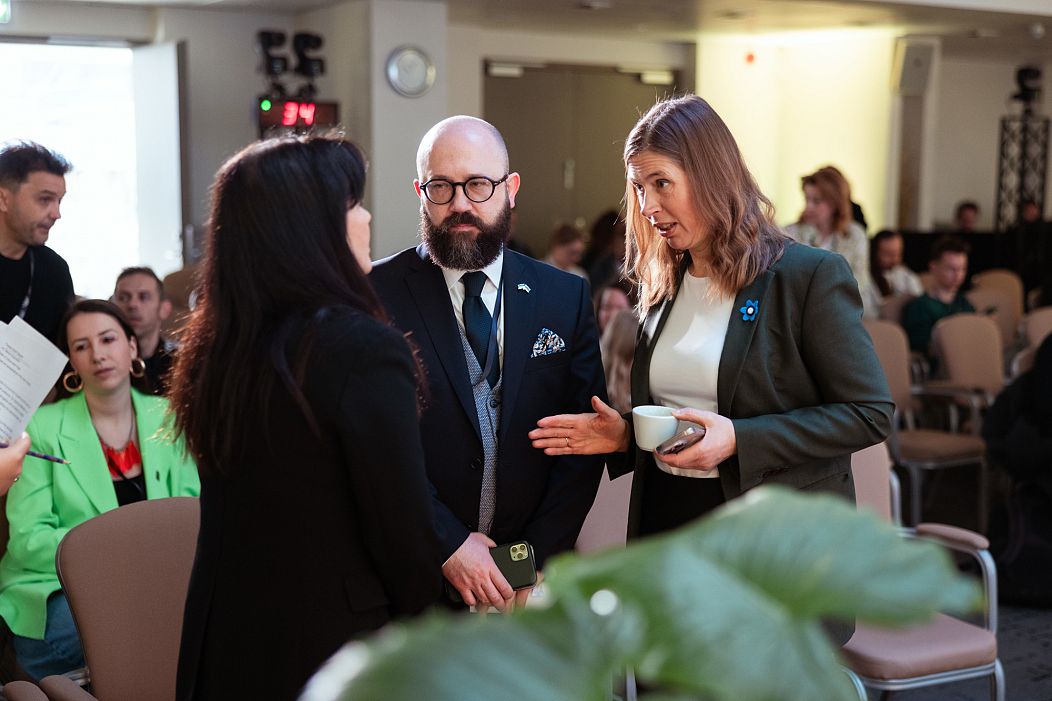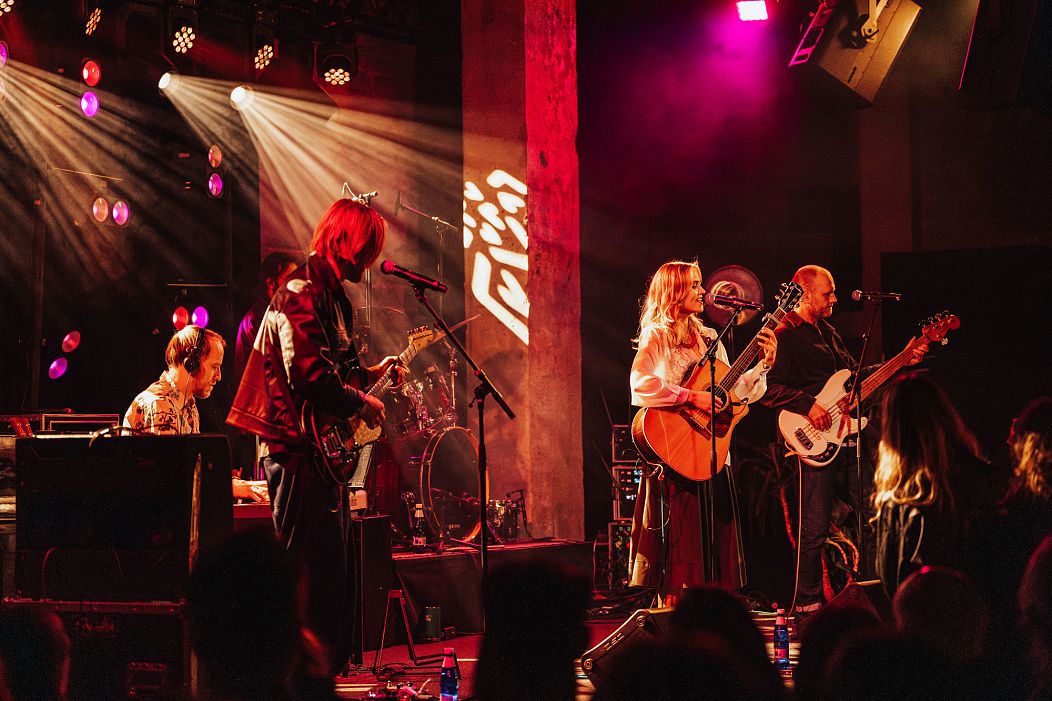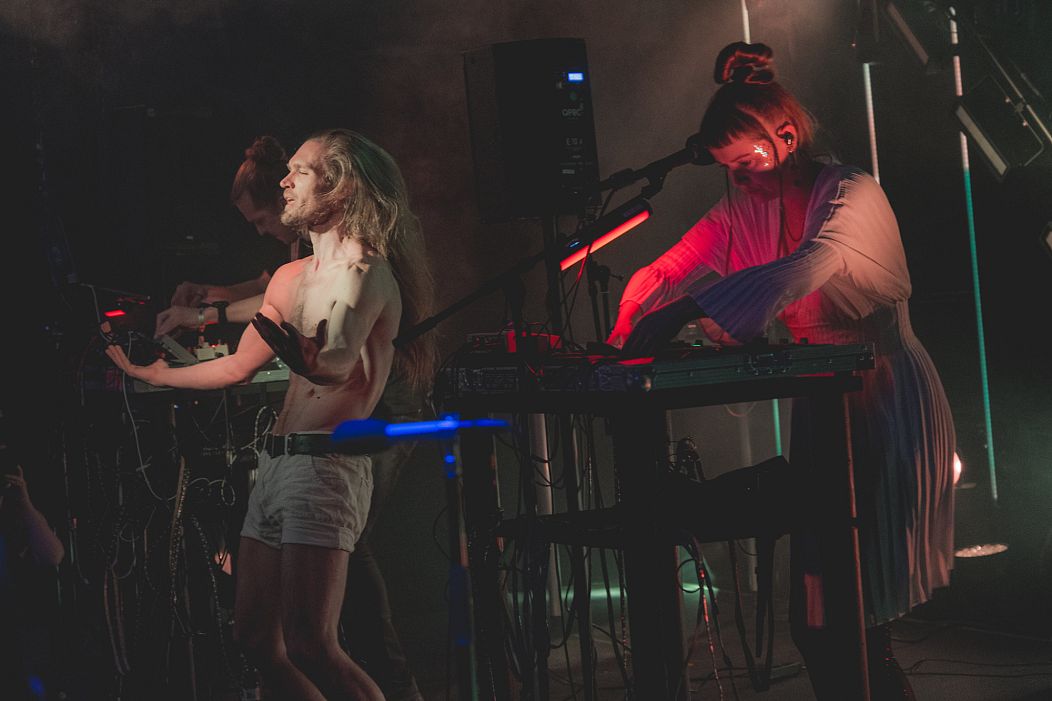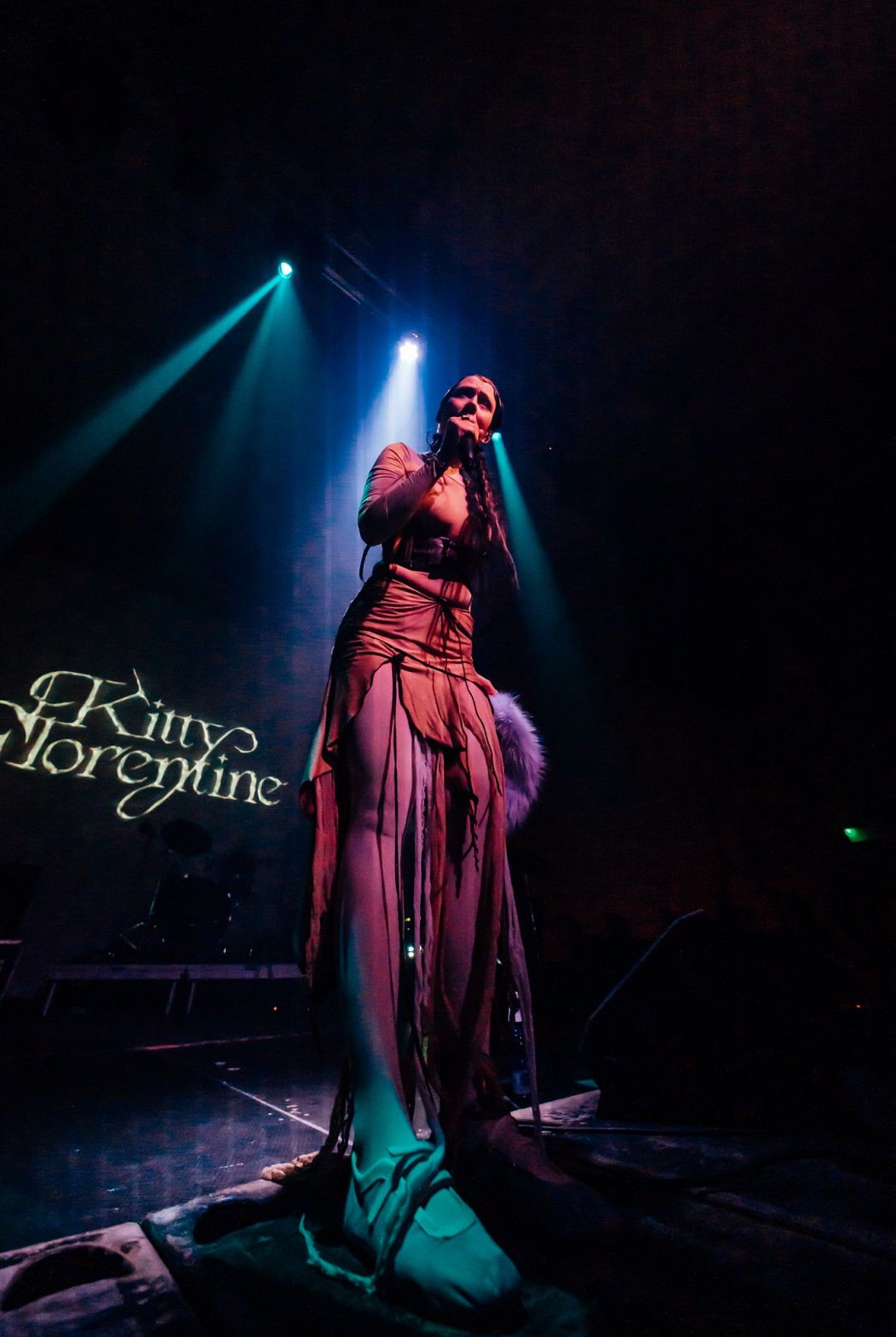The music of esteemed Estonian composer Arvo Pärt may be "about the silence" but in his national capital, in his 90th year, the reverberations from some serious noise are being felt this week.
With a blistering array of talent from all over Europe, Tallinn has been awash with colour, sound and the exchanging of ideas. Its three-day music festival is a multi-genre affair across several venues and the main push being for domestic artists, but there are also acts from across the globe.
Having an international festival and conference in 2025 only a couple of hours drive from the Russian border generates a fascinating if wholly undesirable context. And while the protection of national identity and history preoccupy, music is able to provide defiance, a connection to ethnic traditions, and a framework for soft power.
International scope
The wider Baltics are well represented alongside many other nations including the UK, France, Germany, and Serbia. There were special showcase evenings from Canada and Taiwan, leading to acerbic border parallels from former Estonian President Kersti Kaljulaid in her inspirational opening speech.
"In these difficult times," she said, "culture is a tool which helps us in this part of the world, north-east NATO, Ukraine, also Taiwan, Canada, Denmark. It does help us, and it helps us in a way that makes the fears we have bearable to discuss."

Of course their friends across the Baltic Sea in Scandinavia provided a number of thrills. And it's this last group that provides an interesting cultural shift.
In Estonia right now there is a conscious re-framing of their projected identity as being much more Nordic than Eastern European.
"We, ourselves, identify ourselves as Nordic-Baltic, northeast corner of Europe," Kersti Kaljulaid tells Euronews Culture. "Fantastic, different, varied cultures. For example, Finland, Estonia, we are Fenno-Ugric...this cultural distinction is so important for us that we want the world to know it, and normally they don't."
"They don't also understand what does it mean to be truly Nordic in this sense that, you know, from November to February, you don't see any sunlight. Previously, at least, you had snow. Now, in the Baltics, even snow may be disappearing because of the climate change. So, it's a tough kind of climatic conditions to live in, and it's extremely important that we are able to keep our people's mental health during these difficult periods," says Kaljulaid. "I think it also adds to this kind of Nordic culture of thoughtfulness and long discussions, and you know how it is. A little bit like Danish hygge, but I think in Nordic case it's a little bit more sinister. We discuss serious things. We don't just light candles and then sit by the fireside."
A choral history
Music is certainly in the blood of Estonians, particularly the tradition of multi-voice singing (I've never heard so many people say they belong to choirs as I did in Tallinn), and this was thrillingly demonstrated by the six-piece acapella collective, Estonian Voices.
Under the artistic direction of chief arranger Kadri Voorand, the group have torn up the domestic jazz scene with a litany of awards to their name across the last decade. Vorrand sees history and tradition as inescapable.
"I think Estonia exists because we are full of it all the time," she tells Euronews Culture after a sell-out performance at switched-on culture centre Fotografiska. "We are such a small nation. We would have not survived through 700 years of different countries here, like Denmark, Sweden, Germany, the last ones were the Russians. The Russians were the worst, but even they couldn't take away our sense of identity."
Vorrand's alto range has a Cleo Laine-esque velvet quality and her arrangements are both exciting and sophisticated. The sound is crystal clear allowing the full range of vocal expression to fill what space there is left in the venue. Estonian Voices are a stunning window onto history while changing the face of contemporary Jazz. Seeing them live enchants the senses and obliterates the often horrific spectre of the American College acapella group.
Estonian singer Alonette (aka Anett Tamm) is one of those fascinating pop artists who remain hugely listenable despite quite complex modulations.

She's more influenced by Joni Mitchell than by anything folkloric but she still admits that the threads are there. "This strong choir tradition that we have I think it subconsciously will and has influenced my melodic thinking, because your upbringing was full of it, whether you were attached to it or not."
The Devil's Instrument
Mari Meentalo flies the flag for the avant-garde with her band, OOPUS at old school industrial venue, D3. The set began with a mesmerising solo on Estonian bagpipes before Raho Aadla took centre stage allowing the music to pulse through him and act as a conductor in both senses. Wearing only denim cut-offs and resembling a Bondi surf dude, Aadla was not a founding member but asked to collaborate with his dance and the band loved the idea.

Inspired by their Finno-Ugric heritage, OOPUS are hard to define but there's no question about their reverence for tradition. Folk hymns from bygone centuries are a reference, indeed the West Coastal and Island areas of Estonia established both hymns and bagpipes as part of the culture. The pipes were not always revered, however, explains Meentalo.
"They were seen as the devil's instrument and were banned for a while in the 18th century, meaning that if you were caught playing them you could be not only fined but beaten!"
They also, rather interestingly, have a lighting designer as a member of the band. "The visuals are so central to what we do that Aleksander (Sprohgis) had to join officially," Meentalo adds.

Other home-grown acts who impressed across the festival were Ouu, who recommend attending their shows in order to "boost your mood and productivity". This humour runs through their music and stagecraft. I suspect they would have been huge in the 80s. And the magnetic, thoughtful and quirky Kitty Florentine, whose clear bond with her audience provided an extra dimension of performance to a concert already full of layers, drama and filmic soundscapes.
Music City
In 2021 Tallinn gained UNESCO status as a Music City in the Connected Cities (UCCN) network.
"Tallinn Music Week is there to show this globally to everybody, and that's what we do, also being part of that network," enthuses Kaljulaid.
"We take all these initiatives as yet another chance to show how great we are and how actually different we are from what people normally think."
The spectre of politics
Alongside the music itself, a two-day conference that set out to explore the current status of the music sector in an era dominated by global digital platforms. Delegates discussed challenges posed by platformisation in terms of exposure and revenue, but also the thorny issue of navigating political conflicts in the industry, and the role of music in shaping political discourse. And politics is a continuous looming presence. This edition, the 17th year of TMW, saw the largest delegation of music industry figures from Ukraine.
One of the focus topics for the conference explored 'The Competitive Edge of Europe', but that is of course impossible to isolate from global paradigm shifts.
"Who would have thought," said TMW chief Helen Sildna at the festival's opening, "that in the year 2025 on a panel about the area of political conflict...we would also be looking to America with concern and confusion."
"Russian's aggression has triggered not only a wave of resistance, but also a wave of cultural revival," said Ukrainian Ambassador to Estonia Maksym Kononenko. "Today, Ukraine's cultural and spiritual life is experiencing a true renaissance."
Kaljulaid, whose foundation has raised nearly half a million dollars for Ukrainian journalists, agrees.
"The resilience of Ukrainian nation is fantastic," she enthuses. "And, in a way, well, it is war which creates nations, and, unfortunately, this war has made Ukrainian nation truly great in their ability, in limited supplies, to keep hoping, keep doing things which matter today, hoping that tomorrow will be better. And I think they actually stand as a great role model. Not only do they stand between Russia and Europe, they stand as a great role model of courage for everybody."
And now for Poland...
The political scene will extend itself into the next festival of this kind in Warsaw in June this year.
In his address to TMW at the Polish Connected Cities reception, Music Week Poland's chief investor Karol Koscinski of copyright collective, ZAiKS.
"Our grandparents had the same ideals to live in a normal country. And now we share the same fears," he said.
But back to Estonian music's cornerstone, Arvo Pärt, who can still be seen walking around the forest near his home in Laulasmaa 35km along the coast from Tallinn, reportedly often carrying a piece of chocolate cake.
Most of his major works were written in the 60s and 70s while in exile having fled Soviet-occupied Estonia. The key to his composition was finding a dialogue between two voices. Perhaps there is no time more sensitive to this than right now.
And so the amps are off, the posters are coming down, and the sea of colour is now making its way variously back to homes and studios across Europe, across the world. The artists of tomorrow may have left Tallinn but the experience will resonate, and so may the question of which will be more powerful, the music in their ears or the hand of history on their shoulders.







